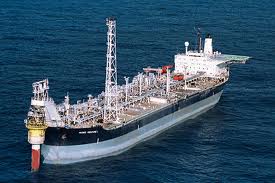Special topics
 The Africa Centre for Energy Policy (ACEP) has said the Tweneboa, Enyenra and Ntome (TEN) oil fields has the capacity of supporting Ghana’s economic transformation.
The Africa Centre for Energy Policy (ACEP) has said the Tweneboa, Enyenra and Ntome (TEN) oil fields has the capacity of supporting Ghana’s economic transformation.
A statement signed by Executive Director of ACEP, Dr. Mohammed Amin Adam believes the revenue emanating from the field will benefit Ghanaians if managed efficiently.
“It is important to note that the arrival of TEN oil is happening at the time the Ghanaian economy is facing difficulties and the hope of the people about the transformative effect of oil diminishing significantly. We must therefore ensure that the resources being extracted from the TEN fields and the revenues from the export of the oil are managed efficiently for the benefit of the people,” the statement added.
President John Dramani Mahama last Thursday turned on the valves of the new John Evans Atta Mills FPSO to mark the beginning of oil production in Ghana’s second oil reserve.The TEN Oil field on which the new vessel Atta Mills FPSO sits is expected to produce between 20,000-23,000 barrels of oil per day.
While urging Ghanaians to moderate their expectation on the new oil field, ACEP, also admonished government to ensure that “challenges encountered with the [first] Jubilee FPSO are not repeated.”
Below is the full statement from ACEP
The Africa Centre for Energy Policy (ACEP) welcomes the flow of first oil from the Tweneboa, Enyenra and Ntome (TEN) oil fields. As the second producing oil field, Ghana’s oil and gas industry is growing and presents many opportunities for the government, the companies and the citizens.
Starting with 23,000 barrels of oil production daily and expected to peak at 80,000 barrels, TEN has the potential to double government petroleum revenue, contribute to economic growth and provide job opportunities.
We are also encouraged that the development of the oil fields provided room for Ghanaians to build the capacity of sector institutions and local firms through the local content initiatives. Particularly, the fabrication of some parts of the second Floating, Production, Storage and Offloading (FPSO) Vessel in Ghana, such as the anchor piles and module deck stools, has laid the foundation for more oil industry fabrication works to be done in Ghana.
The government should therefore invest in building the capacity of more Ghanaians and setting fabrication centres in strategic areas of the country to maximize benefits from the oil industry and to position Ghana as an alternative service hub to Nigeria in the sub-region.
Delivering the project on time and within budget in spite of the oil price crisis further establishes Ghana as a low cost environment and ready to attract more investments upstream. We are however aware that producing oil is one thing but sustaining production and accounting for it is another. Government must ensure that the challenges encountered with the Jubilee FPSO are not repeated.
The anchoring and rotation enabling system, called the turret mooring system, the flow metre as well as the compressor system must be subject to strict due diligence and quality assurance. The flow meters ensure that the right volumes of oil are exported and revenue inflows could be accurately determined. The Ghana Revenue Authority must in addition, ensure that the integrity of the measurement of oil produced is protected by installing parallel electronic seals in the pipelines of the FPSO to ensure electronic data transmission to onshore computerized centres to enable it monitor in real time the flow of oil from the field and to appropriately establish the tax liability of the oil companies.
It is important to note that the arrival of TEN oil is happening at the time the Ghanaian economy is facing difficulties and the hope of the people about the transformative effect of oil diminishing significantly. We must therefore ensure that the resources being extracted from the TEN fields and the revenues from the export of the oil are managed efficiently for the benefit of the people. We know that expectations are legitimately high as people are yearning for development. We wish to therefore add our voice to the many calls on Ghanaians to moderate their expectations about the promise of oil, but we also believe that moderating expectations should not be an excuse for the poor management of the limited oil and gas resources.
We therefor encourage Ghanaians to translate their high expectations into perpetual vigilance on the authorities for the transparent and accountable management of the resources. We are also worried about the statement by the president of Ghana to the effect that the Ghana-Ivory Coast boundary dispute affected the TEN project as the provisional measures order from the international tribunal included an order prohibiting new oil wells in the field.
As an African institution, we wish to see our governments cooperate more on matters relating to the harnessing of our natural resources to address underdevelopment on our continent. Therefore, whilst we wait for the final ruling on the boundary dispute, we encourage the two countries to increase dialogue on the matter to ensure that the citizens of the two countries do not suffer any potential insecurity that could arise from the ruling.
Signed
Dr. Mohammed Amin Adam
Executive Director
–
By: Godwin A. Allotey/citifmonline.com/Ghana
– See more at: http://citifmonline.com/2016/08/22/ten-oil-field-can-transform-ghana-acep/#sthash.IeXz6pOw.dpuf